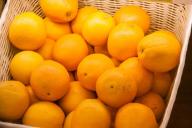Lots of people gain weight in winter - it's a pretty common thing that is often caused by various holidays.
If you want to withstand the temptation and stay in shape during cold and dark months, then you need to detect these habits first.
Here are a few things that can cause weight gain in winter.
Reduced Physical Activity
Cold weather and shorter days can discourage outdoor activities like jogging, cycling, or playing sports.
People may opt to stay inside, reducing their physical activity.

The lack of movement means they burn fewer calories, making it easier to gain weight.
Comfort Foods
Winter often brings cravings for comfort foods like hot chocolate, pies, and hearty, warm dishes.
These foods are often rich in calories and carbohydrates, which can lead to weight gain if consumed excessively.
Holiday Feasting
Winter includes various holidays with big feasts.
Thanksgiving and Christmas dinners, for instance, can be calorie-packed affairs.
Overindulging during these festivities can contribute to weight gain.
Seasonal Affective Disorder
Some individuals experience a form of depression called Seasonal Affective Disorder during the winter months.
This condition can lead to overeating, especially high-carb and high-sugar foods, as a way to cope with low moods and reduced energy.
Limited Access to Fresh Produce
In many regions, winter makes it challenging to find fresh, locally grown fruits and vegetables.
As a result, people may consume fewer fresh, nutritious foods and rely more on processed or canned options, which can be less healthy.
Conclusion
To prevent winter weight gain, try to maintain a balance between indulging in seasonal treats and practicing moderation.
Managing stress and mood through self-care practices and getting regular sleep can also help in avoiding winter weight gain.








